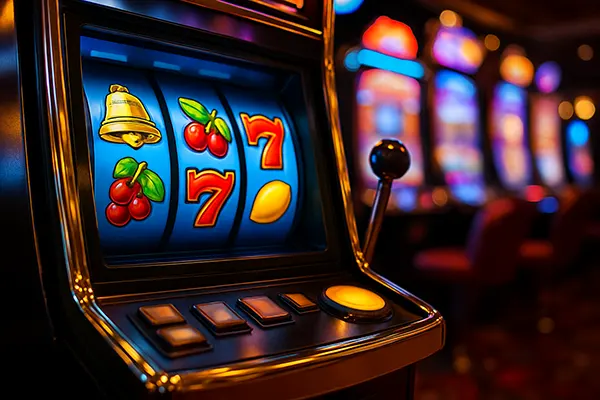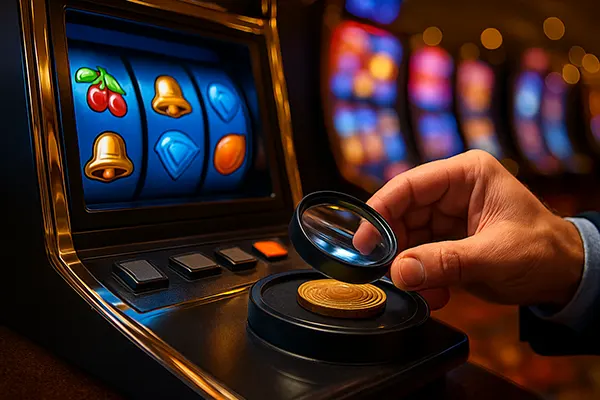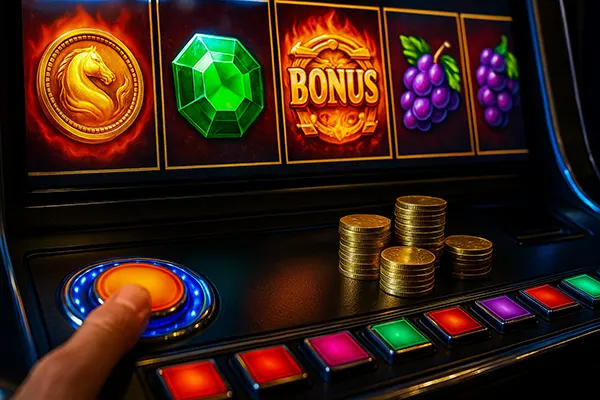
Can Slot Machines Be Fair? How to Identify a Reliable Slot
Slot machines have always been at the heart of casino gaming, attracting millions of players with their vibrant graphics and the promise of big wins. However, the question of fairness often arises, as many players wonder whether they are truly playing on a reliable and fair slot. In this article, we will explore how to assess the fairness of slot machines and provide tips on identifying trustworthy slots in the vast world of online gaming.
Understanding Fairness in Slot Machines
The concept of fairness in slot machines revolves around the idea that every spin should be completely random and independent of previous outcomes. To achieve this, reputable slots use a technology known as the Random Number Generator (RNG), which ensures that every spin is unpredictable and not influenced by prior results. Reliable slot machines are regularly tested by independent auditing firms to guarantee that the RNG is functioning correctly.
When choosing a slot machine, it’s essential to check whether the game is certified by a reputable testing agency such as eCOGRA, iTech Labs, or GLI. These certifications mean that the slot has undergone rigorous testing and complies with industry standards. Additionally, online casinos that hold licenses from respected authorities like the UK Gambling Commission or the Malta Gaming Authority are more likely to offer fair games.
Avoid playing on unlicensed or unregulated platforms, as these slots may not follow the strict guidelines set for fairness. Always look for casino reviews and feedback from other players to gain insight into the reliability of specific slots and platforms.
RTP and Volatility: Indicators of Slot Reliability
The Return to Player (RTP) percentage is a crucial factor in determining the fairness of a slot machine. The RTP represents the amount of money a slot machine returns to players over a long period. For example, a slot with an RTP of 96% theoretically returns 96% of all wagers back to players over time. Choosing slots with a higher RTP can increase your chances of winning in the long run.
Another factor to consider is volatility. Slots with high volatility may pay out large sums but less frequently, while low-volatility slots offer smaller but more consistent payouts. Understanding these aspects will help you choose a slot that matches your risk tolerance and gaming preferences.
Reputable slot developers such as NetEnt, Microgaming, and Playtech often provide clear information on the RTP and volatility of their games. Always check the game’s information section to ensure you have accurate data before playing.
Spotting Unfair Slot Machines
While most online casinos aim to offer fair and transparent games, some rogue operators might manipulate the odds. Unfair slot machines may have abnormally low RTPs or lack verification from independent testing agencies. Additionally, if you notice consistent patterns in outcomes or unusually prolonged losing streaks, it could indicate manipulation.
Always avoid playing on websites with poor reviews, unclear licensing, or dubious payout policies. Legitimate casinos clearly display their licensing information and the auditing agencies that have tested their games. If this information is not available or seems suspicious, it’s best to look for another platform.
Moreover, reliable casinos provide their RTP statistics openly and transparently. If you cannot find the RTP details of a slot, it’s a red flag that the game might not be fair.
Reading Player Reviews and Independent Reports
One of the most effective ways to determine whether a slot machine is fair is to read player reviews. Communities and forums dedicated to online gambling often contain honest feedback from players who have tested various slots. Pay attention to recurring complaints about specific games or platforms.
Furthermore, look for reports from independent review sites that assess the fairness of casinos and their game offerings. These reports often highlight which slots maintain a good reputation for fairness and which ones to avoid. A reliable casino will not shy away from showcasing these positive reviews on its website.
By gathering information from multiple sources, you can make a well-informed decision about where to play. Never rely solely on a casino’s marketing statements when evaluating slot fairness.

Best Practices for Playing Fair Slots
To increase your chances of playing on a fair slot machine, always select games from reputable developers and casinos. Look for well-known names such as Microgaming, NetEnt, and Playtech, which consistently maintain high standards for fairness and transparency. Also, choose licensed online casinos that are regulated by authoritative bodies.
Setting a budget and sticking to it is crucial when gambling. No matter how fair a slot machine is, there is always a risk of losing money. By managing your bankroll responsibly, you can enjoy the gaming experience without financial strain.
Additionally, take advantage of demo versions before committing real money. Many casinos offer free versions of popular slots, allowing you to familiarize yourself with the game mechanics and payout patterns.
Recognizing Reputable Casino Operators
Trustworthy online casinos typically have well-documented policies regarding game fairness, payouts, and responsible gambling practices. Always check the “About Us” and “Terms and Conditions” pages to understand their commitment to fair play. Reliable operators are transparent about their licensing and the independent bodies that audit their games.
Moreover, look for customer support options, such as live chat and email, which indicate that the casino values its players’ concerns. Poor customer service and lack of support are warning signs of a potentially unreliable operator.
Remember, playing on a fair slot machine not only enhances your gaming experience but also gives you peace of mind knowing that the outcomes are genuinely random and not manipulated.





